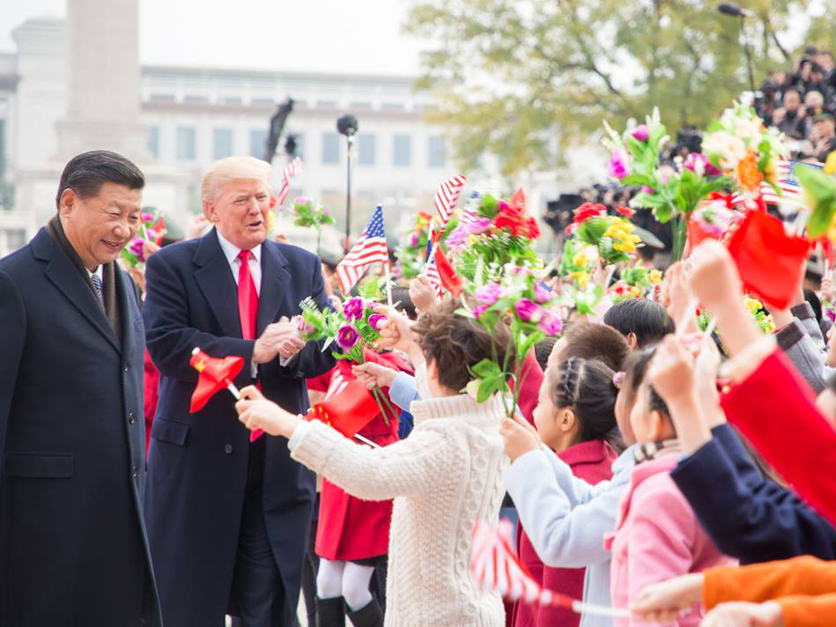President Donald Trump announced plans to meet with his Chinese counterpart at next week’s G-20 Summit in Japan, signaling a continuance of dialogue between two global superpowers locked in a trade war.
Trump made the announcement by way of his Twitter account Tuesday morning. He said he will have “an extended meeting” at next week’s meeting and “our respective teams will begin talks prior to our next meeting.”
Later in the morning, the White House released a statement summarizing a telephone call between Trump and Xi Jinping. "The two leaders discussed the importance of leveling the playing field for U.S. farmers, workers, and businesses through a fair and reciprocal economic relationship. This includes addressing structural barriers to trade with China and achieving meaningful reforms that are enforceable and verifiable," the statement said.
The two countries have been working to end a trade dispute that has placed tariffs on billions worth of imports and exports from both nations. The Trump administration has rolled out two separate trade mitigation packages to lessen the blow of retaliatory tariffs on U.S. agriculture at a combined cost of about $28 billion.
At the outset of a Senate Finance Committee hearing Tuesday with U.S. Trade Representative Robert Lighthizer, Chairman Charles Grassley, R-Iowa, said he wanted to see Trump and Xi agree on "structural changes" to China's trading practices. But Grassley warned against further use of tariffs, saying they "will undermine our credibility with our current and future trade partners" and raise prices for U.S. consumers.
The committee's ranking Democrat, Ron Wyden, D-Ore., chided the administration for not confronting China in coordination with other U.S. trading partners.
Administration officials have been playing down expectations for the U.S.-China talks.
“I think the most that will come out of the G-20 might be an agreement to actively resume talks,” Commerce Secretary Wilbur Ross told The Wall Street Journal over the weekend. “The most that might come is new ground rules for discussion and some sort of schedule for when detailed technical talks might resume.”
Last week, the U.S. Trade Representative's chief agricultural negotiator, Gregg Doud, told the Senate Agriculture Committee he couldn’t predict a timeline for the end of the U.S.-China trade dispute. Many see a Trump-Xi summit as a potential turning point in the negotiations.
For more news, go to www.Agri-Pulse.com.


